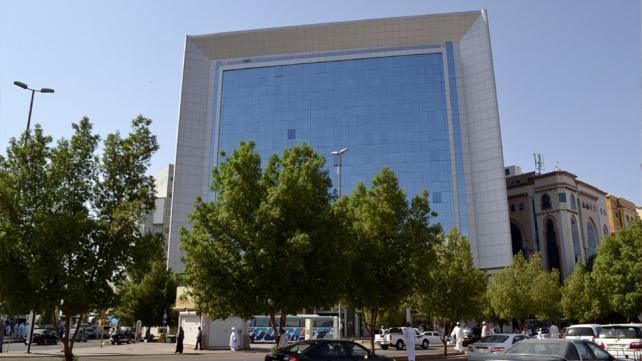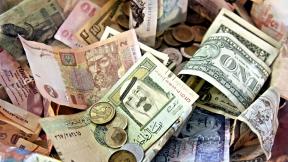
Introduction
Infrastructure refers to roads, bridges, railways, water-ways, airways, and other forms of transportation and communications as well as water supplies, electricity and telephone. It also includes financial institutions and such public services as health and education. More generally it includes all institutional prerequisites of efficient working of competitive markets[1] and expansion in production.
The building up of infrastructure requires huge amounts of capital. The benefits of these huge investments are great but many of them are indirect and all of them accrue gradually over a long period of time. In the developing countries, especially, the private sector either lacks the means to undertake these projects or it is unable to find the (low) returns and (long) time period involved suitable. So the state is called upon to undertake these projects in order to create an environment suitable for growth and development.
It is presumed that government revenue from all sources including politically sustainable levels of taxation falls short of the amounts needed for financing infrastructure. So the issue before us is how to mobilize public's savings for this purpose. In an interest free Islamic economy the question is: how can the Islamic financial institutions help in this regards.
Islamic Financial Institutions and Their Role
Islamic financial institutions are distinguished by their keeping away from lending or borrowing on interest. An Islamic bank accepts investment deposits on a profit sharing basis. It supplies some of these funds to businessmen on a profit sharing basis. But currently other modes of finance permitted by Shariah are in greater use so that these banks can earn profits for their shareholders and depositors. Islamic investment companies operate like mutual funds. They invest clients' monies in common stock or use them to earn profits through Islamic modes of finance as Islamic banks are doing.
Broadly speaking, there are two ways in which Islamic banks and other Islamic financial institutions can mobilize private savings for public sector projects related to infrastructure. The first way is based on profit sharing and can be applied to projects capable of yielding measurable monetary returns e.g. in the form of a toll tax for using a highway or motor vehicles licensing fees for using roads in general, etc. Funds mobilized in this framework can be rewarded by a percentage share of the actual returns.
Secondly, funds can be mobilized by selling at a higher than cost price services / benefits of certain infrastructures which are 'purchased' on deferred payment from the private sector which builds them for the government in expectation of good returns on their investments. Thus an airport can be built by a private company, local or foreign, and sold or rented to the government which pays the installments due out of money collected as airport tax and landing fees etc.
It may be noted that whereas the returns to the investor in the first mentioned way is variable it is predetermined in the second case. Islamic economists have devised certain financial instruments under both frameworks reported above. We proceed to describe them.
Sharing Based Instruments
These generally yield variable returns and do not guarantee the capital invested since they are based on mudaraba or shirka. They are the earliest ones to be proposed in the literature on Islamic banking[2]. They are also the first one to be adopted in practice e.g. Mudarabas and PTC in Pakistan: "The banking and financial institutions in Pakistan have evolved a new corporate security to replace the interest based debentures which is named "Participation Term Certificates" or PTCs. Participation Term Certificates are transferable corporate instruments based on the principles of profit and loss sharing and are intended to replace debentures for medium and long-term local currency loans for industrial and other financing. Instead of receiving interests, as in the case of debentures, the PTC shareholders share the profit or loss of companies involved. John Harrington of Seton Hall University, New Jersey, USA has suggested that PTC may be used as a vehicle to finance the construction of public buildings to be leased to the government. Holders of PTC would profit from rentals paid by the government and also from gains if the properties were sold at higher prices. PTCs of this type would reduce the need for government debt, provide an attractive earning asset to investors, and be traded in the capital market. They would be eligible investments for banks, as are other PTCs."[3].
In Iran, Participation Bonds have been launched for the same purpose: "Tehran Municipality, Iran has recently (Approx. in September, 1994) issued a bond named "Participatory Bonds" in accordance with Islamic principles for financing the project of reconstruction of Navab Highway. The essential features of the bond are as follows:
- Participation Bonds are issued in accordance with Islamic Principles and on the basis of investment in economic projects with positive rate of return. The return should be divided between the investors and the issuer of the bonds, who is also responsible for the completion of the project.
- Participation Bonds can be issued, both, by the public and the private sector.
- In each case there should be an underwriter who accepts the floatation of the bonds and purchase of the issue bonds not purchased by the general public.
- For each case, the issuer should guarantee a minimum amount of profit obtainable from the related project. Profits over and above the guaranteed level should be distributed after the completion of the project. If the projected minimum profit is not realized, the entire responsibility of provision of funds for payment of the guaranteed return would fall on the issuer.
- The bonds should be for the purpose of financing a specific project and cannot be used otherwise.
- The bonds are issued together with special coupons for collection of returns. Due date of such coupons are specified at the time of the issue.
- Such bonds are issued without name and on bearer basis.
- The bonds are negotiable and can be transacted through Tehran Stock Exchange, Bank Mili (Central Bank of Iran) is the underwriter and, hence, the agent responsible for floating this bond"[4].
It is reported that the Central Bank of the Islamic Republic of Iran is considering "a proposal for a National Participation Paper (NPP) with return linked to an index of stock market and other measures of private sector returns"[5]. The proceeds will be used for financing government operations, infrastructural projects in particular.
Sudan has introduced Central Bank Musharaka Certificate (CMC) which "refer to an equity based instrument that is issued against the government (or central bank) ownership in commercial banks"[6]. It has been introduced "in order to enable the central bank to regulate domestic liquidity through open market operations, and thereby facilitate exchange market unification"[7].
Sudan is also considering the introduction of Government Mudaraba Certificate (GMC) which "refers to an instrument that enables the government to raise funds through the issuance of securities that promise the investors a negotiable return that is linked to the developments in government revenue (a share in government revenue, for example) in return for their investment in the provision of general government services"[8]. These instruments differ in various respects from the simple models presented in the theoretical literature noted above. But the essence remains the same. Funds are mobilised by selling certificates whose owners can expect an annual return. Some of them are negotiable so there is, theoretically at least, a possibility of making capital gains. The returns are linked either to certain projects or to growth in a broad sector of the economy.
The fund user is the government which builds the infrastructure and the fund suppliers are the people who have savings to invest but the one who 'intermediate' are the Islamic banks and other financial institutions. So what is their role and how can they play it? Once the government issues a particular sharing certificate the Islamic bank or other Islamic financial institutions buy it out of the funds accumulated in their investment accounts or as insurance premia, as the case may be. The government's obligation to pay yearly dividends may be met through the banks to whom it may transfer their share of the declared profits. If the certificates have a maturity date the government offering to pay back the capital (with the final year's profit or minus the losses) this obligation too it met through the banks. In sum, the government transacts only with the Islamic banks and other financial institutions. Also the public transacts only with the Islamic banks and other financial institutions. The government does not deal with the public directly.
A secondary market in such certificates would develop. Those who do not wish to keep the certificate till maturity could sell, those who missed the issue when it was launched could buy. It will function like any other market, the certificate price being determined by supply and demand. It is also possible to launch profit-sharing certificates which bear no maturity date. They are perpetual[9], the government being the perpetual mudarib or partner, the holder of certificate being the financier (Rab al Mal) for the period he decides to hold it. Certificate owners could sell and buy on the market making capital gains or losses. Annual profit would be disbursed to the one holding the certificate at the date dividends are due. For convenience, the government may deal only with institutions, banks, investment companies, brokerage houses etc. The public may realise their claims through these institutions. The proceeds of these perpetual certificates will have to be invested in such revenue yielding government activities that are perpetual in nature.
Instruments Yielding Predetermined Returns
These have been devised on the basis of Ijara[10] (leasing) Istisna[11] (Manufacturing contracts) Salam[12] (Prepaid contracts for agricultural products) or Murabaha[13] (Cost-plus or markup sales). The Islamic financial institution which markets the instrument appears in the middle of a tri-partite relationship linking the ultimate user/buyer and the producer / seller. The financial paper sold to public by the Islamic financial institution bears the promise of a pre determined return as rent or price installment. Generally speaking most of these papers are not negotiable hence do not have a secondary market. But theoreticians are suggesting ways and means of making them negotiable. This is especially applicable to rent sharing certificates: "A buyer of such a certificate is acquiring a share in the ownership of a real asset, and an equal share in the net rented income of that asset for the term of the lease (say n years). Such financial instrument, shariah wise, is fully negotiable ...... Their price would be subject to the forces of supply and demanded like any freely traded assets[14].
It may also apply to some istisna based certificates: "The suitability of istisna for financial intermediation is based on the fiqh permissibility for the contractor in istisna to subcontract. ....... the public authority first defines the specifications of a fixed investment project it wants to establish and the number of years itrequires to repay the price. Bids are invited ........ when the facilities are built and the istisna contract consumated, the full ownership of the facilities is immediately transferred to the public authority, against the deferred sale-price that would normally cover not only the construction cost but also a profit ........ The deferred price that the public authority will pay may be in the form of interest free DPCs (Deferred Price Certificates of indebtedness) whose total face-value exactly equals the total deferred price ..... DPCs represent public authority's debt. .............
Even though a debt in Shariah may not be exchanged (bought and sold) at a price different from its face value, it may be transferred (endorsed) at face value to a third party. An Islamic Bank holding such a certificate may acquire against them property or merchandise for a deferred price. Once acquired such property or merchandise may be disposed off in any manner."[15]
Some private Islamic Companies are marketing such instruments but to the best of my knowledge, with the exception of Malaysia, no country claiming to be practising Islamic banking at the national level has adopted these ways. Yet the theoretical literature presenting these instruments as possibleways of mobilising savings for financing infrastructure deserves serious attention. The main reason why these instruments need being closely examined and possibly adopted in practice is that sharing modes of mobilising private savings are not suitable for projects with no direct measurable monetary return e.g. education,health care etc.
Application
The practical steps needed to realise the potential of Islamic financial instruments for building infrastructure are, firstly, identify the projects with some details and invite the Islamic financial institutions to mobilise the required funds. The next task is to identify the instrument or instruments suitable for such mobilisation vis a vis a particular project or group of projects. Both the government and the financial institutions need work together in this crucial task. Thridly the issues may be launched in cooperation with these institutions and the public be invited to buy them through these institutions. Lastly, development of a secondary market in these institutions will need some doing, especially in the initial stages. A market maker is needed. This role can be played by an enterprise (a partnership, a joint stock company) or even a state owned bank, as the situation may demand. In the Islamic banking experience so far, Dallah Al Barakah group's companies, at Tawfeek and al Ameen are focused on such a role.
In the context of the first step noted above, the idea of a large pool of investable funds which could cover a number of projects had gained favour over project-wise fund mobilisation. This may be more suited to a country faced with the task of building several kinds of infrastructure simultaneously e.g. telecommunication as well as highways and irrigation canals. The recent moves in Iran and Sudan, noted above, can be appreciated in this context.
The four steps: project description, instrument designing, issue launch and help developing an efficient secondary market, are, each in its own turn, important for mobilising private savings for infrastructure building through Islamic financial institutions. They are familiar tasks. Doing them in Islamic framework has already begun. This seminar of ours may boost these efforts further.
End Notes:
[1] Joseph E. Stiglitz: "The Role of Government in Economic Development", in Annual World Bank Conference on Development Economics, 1996, edited by Michael Burno and Boris Pleskovik, Washington, D.C., The World Bank, p. 14.
[2] M.N. Siddiqi, Banking Without Interest, Leicester, The Islamic Foundation, 1983, 1997, pp. 133-141.
[3] Ausaf Ahmed and Tariqullah Khan (eds.), Islamic Financial Instruments for Public Sector Resource Mobilisation, Islamic Research and Training Institute, IDB, Jeddah, 1997, p. 100. For other relevant details see pp. 101-102. On Mudarabas see pp. 97-99
[4] Ausaf Ahmed and Tariqullah Khan (eds.), Islamic Financial Instruments for Public Sector Resource Mobilisation, Islamic Research and Training Institute, IDB, Jeddah, 1997, pp. 107-108.
[5] V. Sundrarajan, David Marston and Ghiath Shabshigh, 'Monetary Operations and Government Debt Management Under Islamic Banking', Washington D.C., IMF Working Paper, 1998 (WP/98/144), p. 10.
[6] Ibid, page 11.
[7] Ibid, page 11.
[8] V. Sundrarajan, David Marston and Ghiath Shabshigh, 'Monetary' Operations and Government Debt Management Under Islamic Banking, Washington D.C., IMF Working Paper, 1998 (WP/98/144), p. 13.
[9] See for example, Sami Ibrahim al Suwailim's coments in Ausaf Ahmed and Tariqullah Khan, op. cit, especially, p. 247.
[10] "Lexically it means to give something on rent". In the Islamic jurisprudence the term ijarah is used for two different situations. In the first place it means 'to employ the service of a person on wages ...... The second type of Ijarah relates to the usufructs of assets and properties, and not to the services of human beings. Ijarah in this sence means 'to transfer the usufruct of a particular property to another person in exchange for a rent claimed on him.' In this case the term Ijarah is analogous to the English term 'leasing'."
Muhammad Taqi Usmani, An Introduction to Islamic Finance, Karachi, Idaratul Ma'arif, 1998, pp. 157-158.
[11] 'It means to order a manufacturer to manufacture a specific commodity for the purchaser. If the manufacturer undertakes to manufacture the good for him with material from the manufacturer, the transaction of istisna comes into existence."
Ibid, p. 195.
'[12] Salam is a sale whereby the seller undertakes to supply some specific goods to the buyer at a future date in exchange of an advanced price fully paid at spot'.
Muhammad Taqi Usmani, An Introduction to Islamic Finance, Karachi, Idaratul Ma'arif, 1998, p. 186.
'[13] "If a seller agrees with his purchaser to provide him with a specific commodity on a certain price added to his cost, it is called Murabaha transaction".
Ibid, p. 95.
'[14] Muhammad Anas Zarqa "Rent Sharing Certificates ....." in Ausaf Ahmad and Tariqullah Khan, op. cit, page 318. Also see pp. 317-324.
'[15] Muhammad Anas Zarqa "Istisna Financing of Infrastructure Projects"in Ausaf Ahmad and Tariqullah Khan, op. cit, pp. 231-241.
Also in the same volume, see the paper by Mohamed Ali Elgari, 'Islamic Investment Funds as Means of Resource Mobilization' especially pp. 277-78.
Published with permission. © 1999-2000. Mohammad Nejatullah Siddiqi, Professor, Centre for Research in Islamic Economics, King Abdulaziz University, Jeddah, Saudi Arabia. mnsiddiqi@hotmail.com.
Photo Attribution: http://commons.wikimedia.org/wiki/File:Arrajhi_Bank_Office_Madinah.JPG






Comments
i really admire the writer, he is one of the best in islamic banking and finance,he should be given islamic 'nobel prize 'equivalent in that subject.
Location
i really admire the writer he is one the best in islamic banking and finance,he should be given islamic 'nobel 'equivalent price in that subject
Location
Add new comment